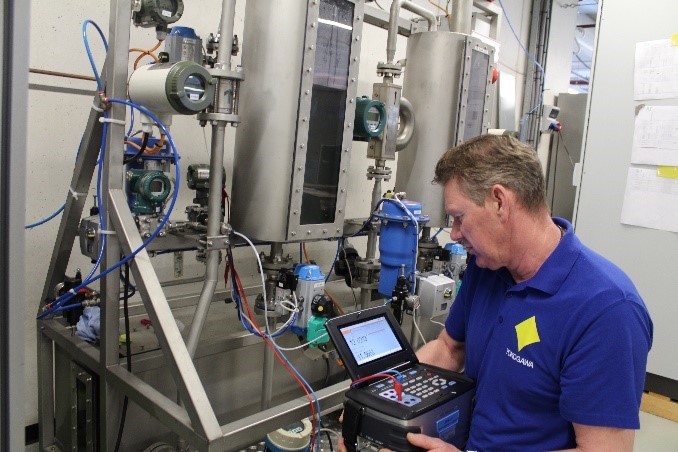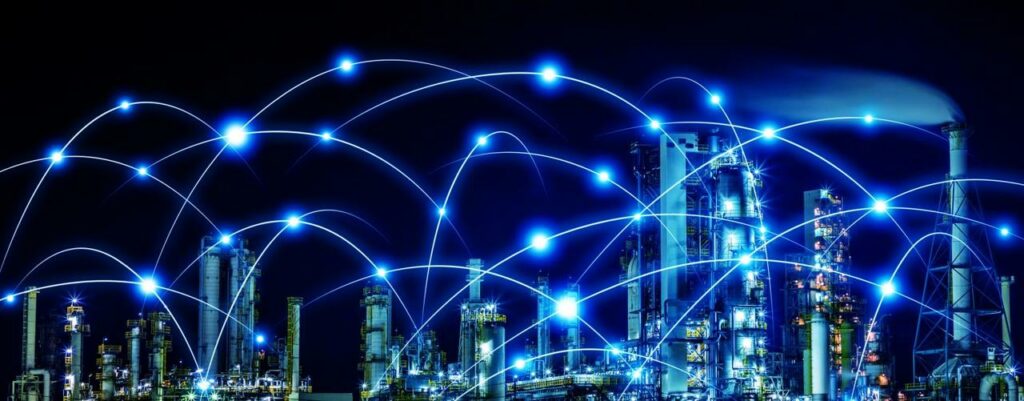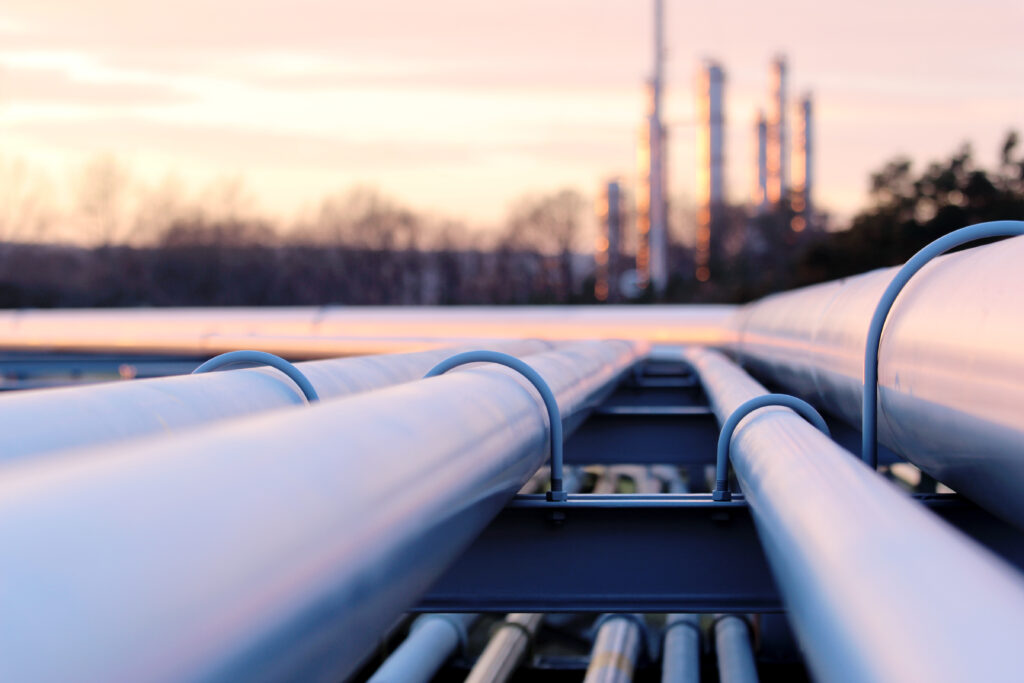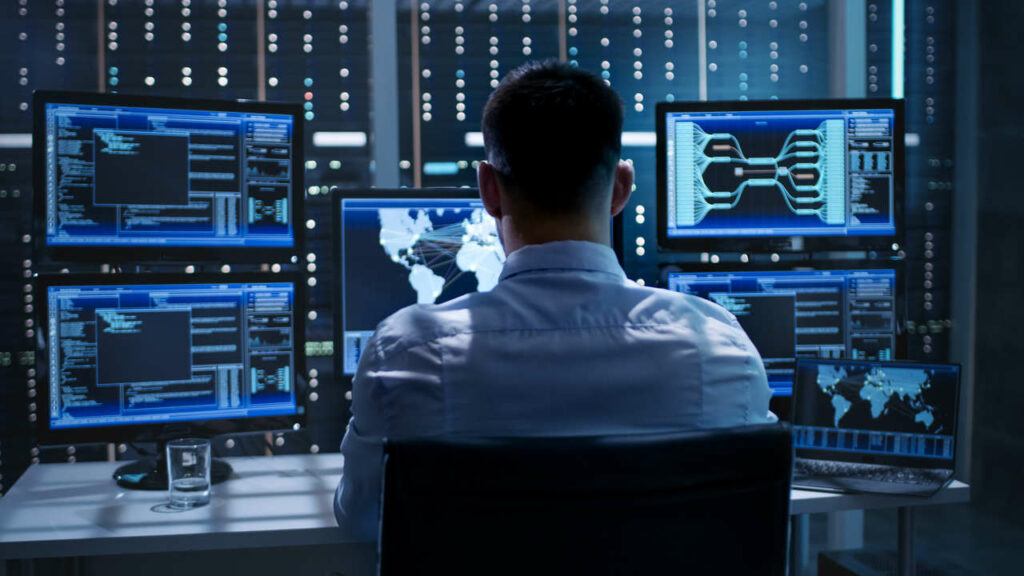The quality of products is strongly associated with the quality of measurements. In nearly all production processes, accurate measurement has a direct influence on product quality and on safety. Many organizations have their field instruments calibrated, but often do not know the exact reason behind it. Obtaining a certificate for an audit is not the goal. Why are calibrations important? And what are the common pitfalls of end users? In this article, service engineer Gerrie van Kessel shares some tips and tricks based on his 28-years of working experience.
Service Engineer for 28 years: ‘No working day is the same’
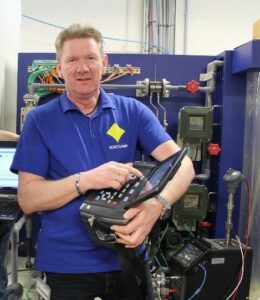
In September 2020, Gerrie will be working for Yokogawa as a service engineer for 28 years. When it comes to calibration and maintenance work in the process industry, he is definitely an expert in this field. What he likes about his job? “It’s extremely diverse! I always say: no working day is the same. When I leave home in the morning, I have no idea how the day will end”, explains Gerrie.
Gerrie regularly carries out calibrations and maintenance work at end-users in the process industry. “One day I’m doing work on pH and conductivity, the next day I get in the car for Zirconia oxygen analyzers, and then suddenly I’m on the road again for pressure and flow meters. Not forgetting the Data Acquisition and Advanced Analyzers (TDLS and Gas Chromatography) too of course”. Diverse work activities indeed. Moreover, Gerrie enjoys daily contact with different customers. “Every day I meet with different customers and I often come across the same customers as well. In addition to work-related conversations, we often have enjoyable private chats. I also appreciate the freedom in my work, together with the great responsibilities that come with it”.
Why Calibration of your Measuring Instruments is Important
Many companies have their measuring instruments calibrated, but often do not know the reason behind it. Calibrations are crucial because end users wish to know whether the critical equipment falls within the strict specifications. Failure costs (due to rejected products), re-measurement, and safety problems can better be prevented.
Possible measurement deviations can be determined when measuring instruments are calibrated on a regular basis. Undoubtedly, it is important to make sure measurements are precise. There are no specific industries where calibrations are particularly important, as calibrations are essential in every branch. “For example, I travel from a chocolate factory one day to the power plant in Borselle the next day. Then suddenly I’m at the oil refinery in Rotterdam or at the pharmacists in Leiden, where they make essential medicines. We also carry out calibrations for the water market (drinking water, wastewater) and the power industry, so every day my work can be in a different industry”. Yokogawa calibrates for many customers from various industries. “Thanks to our knowledge and experience, we always attain the right value”, Gerrie says.
Common Pitfalls of End-Users
The greatest challenges of Gerrie’s work lies in solving plant failures and measurement errors. Preventive maintenance is necessary, but solving system failures and measurement errors are often more challenging. Gerrie shares two examples showing the importance of calibration and common issues that are often overlooked by end-users.
Pitfall 1: Measuring pH-values at Different Temperatures
When it comes to pH measurements, Gerrie frequently notices that they deviate or differ from lab results. He sees a big difference in measurement between the laboratory results and the process results of our pH meter (or conductivity meter). “This is often because the pH is not measured at the same temperature. For example, the temperature in the process is 80 degrees. They let the sample in the laboratory cool down to 20-25 degrees. Then they measure the pH value at 20-25 degrees, while we measure the pH value at 80 degrees in the process. That is a big difference. Many customers think that the temperature is compensated. But that’s not the case,” states Gerrie. Temperature is compensated for the sensitivity of the pH electrode (mv/pH), but there is no standard compensation for the pH value at the process temperature. The result? “Significant deviations in the measurements. The solution is to calculate the temperature coefficient of the medium and this is then entered the transmitter. I recently did this at a customer site in Delfzijl. They also had many deviations in their measurements which can be big differences (> 1.5pH). Customers often don’t take that into account”.
Pitfall 2: Only Having Flowmeters Calibrated
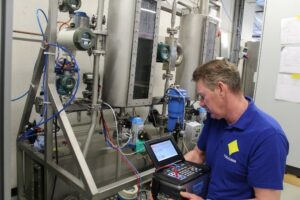
‘Not satisfied until the customer is also satisfied’
Yokogawa calibrates for many customers from various industries. Thanks to our knowledge and experience, our service experts ensure the optimization of your process and traceability to the required standard. “My work is solution-oriented and customer satisfaction is paramount. I’m not satisfied until I leave the customer site’s gate at the end of my working day, knowing the customer is also satisfied”, declares Gerrie.
More information or questions?
By having your instrumentation calibrated annually, you can detect imperfections at an early stage and extend the life of the instruments.
At Yokogawa, you can choose between three calibration options:
- calibration on location
- calibration at Yokogawa Europe Solutions B.V. in Amersfoort
- calibration at our Yokogawa calibration facilities
Please contact us via your contact person or via +31(0)88 464 1000 / service-orders@nl.yokogawa.com or visit our website.
